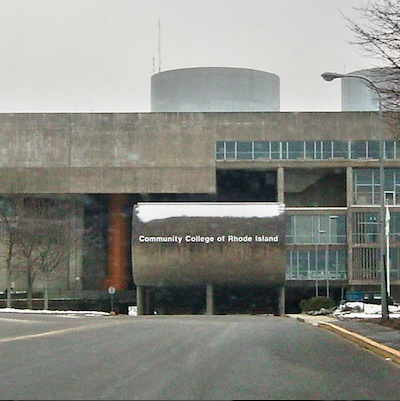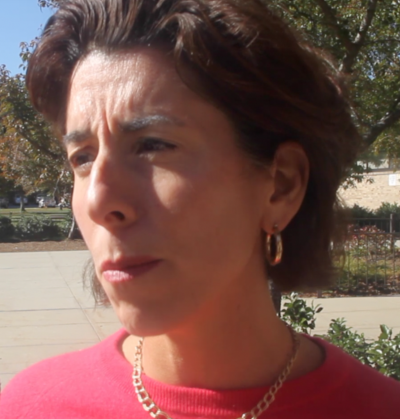Bishop: Keeping it Weird
Thursday, July 06, 2017
Some people think the legislative session ended weirdly. But at least its over, which is a blessing to us all because, as Gideon Tucker said, no man’s life, liberty or property is safe while the legislature is in session.
While we were spared the worst of what the legislature had in store for us, sadly, several awful bills await the Governor’s signature. One can only hope she isn’t so focused on identity voters that she stops to think twice before signing H5277, a bill that inappropriately conflates treating gender dysphoria, i.e. identifying as other than one’s biological gender, with “conversion therapy” for homosexuals.
The preamble to this legislative disaster rambles on at length about what the American Pyschiatric Association (APA) has to say on the topic. The APA long ago removed homosexuality from its Diagnostic and Statistical Manual of Mental Disorders. But the latest edition, the DSM-5, retains and explains Gender Dysphoria. The authors of this legislation clearly cherry picked the APA.
Therapy for children, according to the current statement on the APA website: “may focus primarily on affirming psychological support, understanding feelings and coping with distress, and giving children a safe space to articulate their feelings. For many children the feelings do not continue into adolescence and adulthood.”
In fact, the APA Handbook of Sexuality and Psychology reports a 75% desistance rate, i.e. young children who expressed a transgendered identity but following puberty retraced their steps and found comfort in their biological gender. (of those who do desist, a noticeably larger fraction than in the general population express homosexual orientations, which the APA recognizes as entirely different from gender identity.)
Does that mean, you wonder, that the APA opposed this bill. After all, this finding that youthful gender identity could change was the precise opposite of the APA findings quoted by H5277 with regard to ‘reparative’ therapy for homosexuality: “in the last four decades, ‘reparative’ therapists have not produced any rigorous scientific research to substantiate their claims of cure.
You would think the APA would stand up against the state inserting itself in the doctor patient relationship in an area where resolution has been documented. You’d be wrong, but another liberal organization, the ACLU, did have the good sense to recognize the looming danger of this legislation.
The ACLU objected to the state banning psychologists’ speech, suggesting that courts skirting the 1st amendment by finding this ban covers “professional conduct” subject to regulation are on a slippery slope. The ACLU didn’t cut quite to the chase, so allow us to help.
The right to an abortion is currently secured because the medical choices arrived at between doctor and patient are protected. What if some state were to ban reproductive termination therapy, i.e. abortion, on the basis that they were regulating “professional conduct." In fact, that is regularly undertaken. The only thing that stands between such a law and constitutionality based on the state’s police power is the privacy of the relationship between the doctor and patient. The ACLU gets that. Apparently no one else in the progressive camp got the memo.
But forgetting that contentious arena, it seems quite likely that other states could ban conversion therapy of another sort, the sort celebrated by the gender identity affirmance movement. The affirmance protocol involves not simply helping children presenting with gender dysphoria deal with distress while they resolve their gender identity, but actually administering hormonal treatment to suppress puberty and the expression of their biological gender, simultaneously sterilizing the child. Such treatment, which in the abstract could be characterized as child abuse, might be appropriate as determined by a psychologist and the child’s parents where there is marked persistence of gender dysphoria and clear commitment of the child to transition.
One can hardly imagine that the approach taken by Rhode Island legislators is legitimate and dismiss the possibility that conversion of this other sort cannot equally be banned. Well of course, such states won’t get LGBT conventions and so forth. But if one is really concerned about the role of parents and health care professionals in solving distress in children, legislating their behavior is hardly the way to go about it.
Really, this is part of the general assault on normality. If there were no normal, then gender non-conforming children would feel less distress because there is nothing to conform to. But normalcy is what the vast majority of people cling to for mental stability. If one vanquishes norms, that is a full employment act for the APA. It isn’t that being outside the norm – as long as one is not outside the law – is wrong. It simply isn’t normal.
There is one place in the world that they get this and would that the rest of us woke up. There is a reason that the slogan is “Keep Austin Weird” and not “Make Austin the Norm”. Theirs is an expression of people who are proud to be different – not distressed to be different. They ask not to be forced to conform, but they don’t ask everyone else to act like them. They revel in being considered weird.
Of course young children are not particularly progressive agents and their herd instincts can kick in, especially when distinguishing differences in their peers. But a place like Austin can remind us that protecting children from stigma and bullying is a worthy cause, because there is nothing wrong with being different. The idea that we instead could erase differences -- treating biology as some kind of prison from which we all must be freed -- is a ridiculous lowest common denominator solution.
One hardly need be a religious fundamentalist to find a natural law in our biology, to acknowledge the norms so established. We should prevent a hegemony that would effectively force a family or their medical counselors to choose transition or desistance for children. It would be a brave act of the Governor to acknowledge these truthes and the errors of H-5277 and consign it to the dustbin of this weird legislative session with a veto.
Brian Bishop is on the board of OSTPA and has spent 20 years of activism protecting property rights, fighting overregulation and perverse incentives in tax policy.
Related Slideshow: FY18 House Finance Budget
Related Articles
- Bishop: Trump for President
- Bishop Tobin: Catholic Church Had “No Choice” in Firing Gay Music Director
- Bishop: Sleepy South County or Races That Matter?
- Bishop and Fired Catholic Music Director Get Into Media War
- Bishop: Have an Alt-Thanksgiving
- Gencarella & Bishop: Political Football v Public Safety
- Bishop: Revolutionary Providence Primaries
- Bishop: Welcome Joe Biden, to Roads That Don’t Work
- Bishop: Tax [Breaks] and Spending
- Bishop: Life in the Slowlane
- Bishop: It Takes [The] Village [People]
- Bishop: Not Much Difference Between Mainstream Media & Fake News
- ABC6’s “In The Arena” Features Paolino and Bishop Tobin
- LIVE: Bishop Hendricken Wins National Academic Decathlon
- Bishop: Met Café to Knickerbocker Café - Prov’s Retro Scene Isn’t in Prov Anymore, & That’s Politics
- Bishop: Water Water Everywhere Nor Any Drop in Rates
- Bishop: The Devil is in The Details - PawSox Park isn’t 38 Studios, But Just as Bad
- Bishop: Trump’s Leading in Right Direction on Climate, & Leading From the Front!
- Bishop: Immigration, is it Really black and White?
- Bishop: Government as a Business? After all, the Free Stuff From Government Isn’t a Loss Leader!
- Bishop: Our Love Hate Relationship With Amtrak
- Whitehouse Faces Angry Crowd of Hundreds at Nathan Bishop Middle School in Providence
- Bishop: Localism vs. Infrastructure
- Bishop: Corporatism for me But Not for Thee - Competing Proposals for 195 land?
- Bishop: Discourse on Discourse – Separating Word & Actions





















